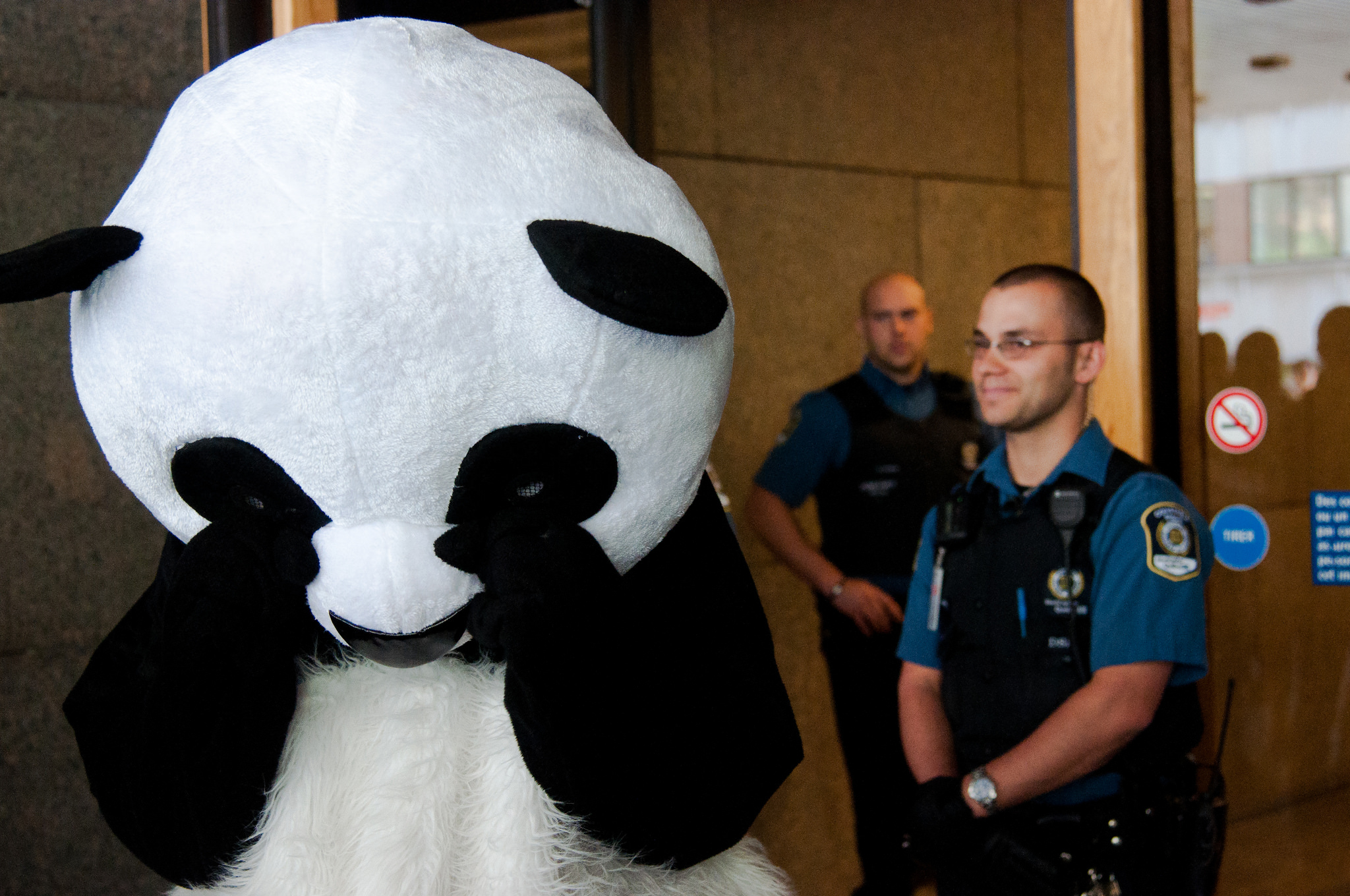Police in Quebec are spying on journalists.
The revelation started when La Presse discovered that the Montreal Police put its columnist Patrick Lagacé under surveillance. It’s grown to include some journalists at Radio-Canada who are being spied on by the Surété du Québec, the provincial police force.
There are two ways that one could react to this news, and both include outrage. The first is outrage over the intrusion into the privacy of journalists, who are a privileged class of individuals. The very foundation of their work requires that they not be intimidated or spied on by state security forces.
The second way to respond requires a more systemic approach. Rather than privileging any member of society, it starts from this basis: what right to police have to spy on anyone?
The latter response is less popular, though critical if we are to understand how the surveillance apparatus of the Canadian state is intimidating, shifting, manipulating and, most importantly, silencing researchers, social activists and journalists.
I know that many journalists won’t like to be lumped together with anarchists. But to separate these two groups when we talk about surveillance creates a false dichotomy between people who deserve to be subjected to some level of surveillance and others who do not.
There are very good reasons to look at how these forms of surveillance work together: when laws are used to suppress citizens who express their free speech and free expression to challenge the state, it’s naïve to imagine that similar repression won’t be used on others.
We need to consider the systemic use of surveillance because what’s happening in Quebec isn’t an isolated incident. It’s not even the first story of its kind this year. In September, police seized the computers of Journal de Montréal reporter Michael Nguyen after he reported that a judge called some special constables “stupid” and “very stupid” (“imbeciles” and “cons“) because they struggled to open an electronic door.
It’s also not simply isolated to Quebec. The RCMP has forced Vice reporter Ben Makuch to court to compel him to turn over text messages from a source. One way or another, Canadian police believe they’re entitled to this information.
You can imagine that had they had the power to simply track Makuch’s text messages to avoid all of this, they probably would have.
Canadian security forces spy on certain Canadians all the time. When I was a student activist at Ryerson a decade ago, CSIS would regularity check in with various members of our board, just to see how they were.
During the G20 in Toronto, everyone seemed to have stories of encounters with undercover police. My own encounter was with a man who followed me for blocks as I walked along Church Street. His big mistake was to keep his police haircut and not wash his civvies before he put them on: T-shirt creases are a dead giveaway.
But I wasn’t arrested during the G20, and the guy that followed me didn’t try to pass himself off as an activist. He just tailed me to my office. He didn’t cozy up to me to pump me for information to use against me later to put me in jail
No, that treatment was left for the radical organizers, mostly anarchists who ultimately were charged, a few who landed in jail for nearly two years. Police joined organizations, became peoples’ friends and participated in planning protest actions. As one friend of mine said to me right after they were exposed: “Wow, who would have suspected that the minute-taker was the cop?”
These deep intrusions into people’s privacy sew fear and distrust among social activists and can upend solidarity. Police know this. But the real-life infiltration is risky and costly: it’s no surprise that digital surveillance is so appealing.
The G20 was an exercise in crowd control: while the actual threat level against global leaders was very low, it offered a real-life training opportunity to practice kettling protesters, running people over with horses and bashing some heads.
And, journalists were caught up in the fray just like everyone else.
This is where the connection between surveillance of the Left, and mainstream journalists converge: the tactics used against one will be used against the other. When we get used to police carding Black Torontonians, we also get used to carding in general. That, when Indigenous activists and environmental protesters are painted as ecoterrorists, we get used to violence used against them, as if it will never be used against us too, someday.
The protests at Muskrat Falls in Labrador again reminds us: when a confrontation intensifies, journalists like Justin Brake don’t get a pass just because they’re present to report, rather than being present to protest.
When Bill C-51 was born, there was a general consensus that the sweeping legislation gave police too many powers, and the impact it could have on journalists was especially concerning. Harper might be gone, but the powers he gave to security forces remains.
Any legislation that can be used to spy on journalists, like Bill C-51 for example, will be used to spy on journalists. As Vice News reported earlier this week, police may be spying through the powers given to them under a law ostensibly meant to stop cyber-harassment.
(Full cynical marks for the legislator who managed to kill those two birds with this legislative stone, though.)
Legislation or practices that are used to crush social movement organizing are no different: they too will be used against journalists.
The role of journalism is to challenge power and this means that journalists are at risk of being targeted by the state. If we must decide between special status for some, versus broad protections against spying and surveillance for all, choose your side wisely. Because when we restrict the freedoms of some, we open the door for governments to restrict the freedoms of all, journalists included.
Please chip in to keep stories like these coming.
Image: Flickr/Alexis Gravel



